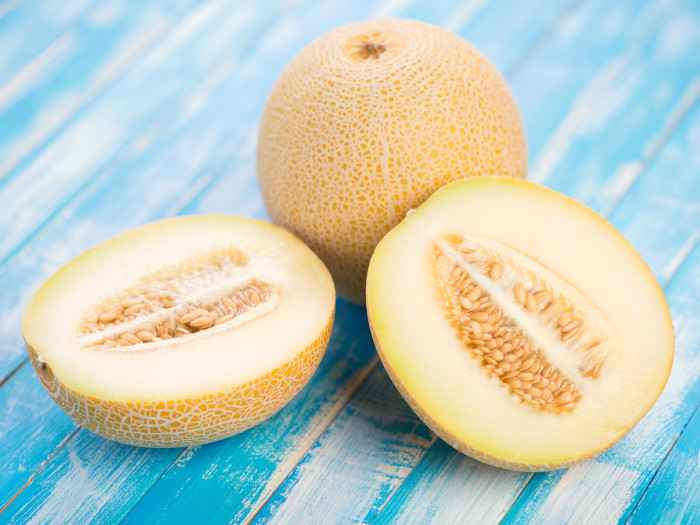The health benefits of galia melons may include their ability to help in weight loss, boost the immune system, improve vision and digestive processes, protect heart health, and help in curing diabetes.
What are Galia Melons?
Although melons are believed to have originated in India, galia melon is actually a hybrid cultivar of cantaloupe and honeydew melon, which was produced in Israel. The scientific name of galia melons is Cucumis melo var. reticulatus, and it is very closely related to the two melons from which it originated. The outer husk is very similar to the pattern and texture of a cantaloupe, but the inner fruity flesh is light yellow to green in color, like a honeydew melon. The taste of galia melons is a unique combination of a cantaloupe and honeydew melon, which many people enjoy. Like all other melons, there is not much else to do with galia melons except to eat them fresh. They are only about half the size of a cantaloupe, so you may need to buy a few more. [1] [2]

The Galia melon has a yellow to orange skin that is covered in light golden-tan netting. Photo Credit: Shutterstock
Nutritional Value of Galia Melons
Galia melons are high in vitamin C, vitamin A, carotenoids, bioflavonoids, various minerals, like potassium, calcium, and iron, and may also contain significant levels of dietary fiber, possibly including pectin. They may also have no fat, no cholesterol, and are low in calories. [3]
Health Benefits of Galia Melons
The health benefits of galia melons are listed in detail below.
May Regulate Heart Health
Galia melons may help improve heart health in two ways. With their possibly high levels of dietary fiber, they help reduce LDL or bad cholesterol in the body, which can protect against atherosclerosis. Also, due to the high potassium content, which acts as a vasodilator, your blood pressure can be reduced. [4]
May Aid Digestion
Dietary fiber, particularly soluble fiber like pectin, which galia melons are high in, can help bulk up your stool and eliminate constipation and other gastrointestinal issues. Furthermore, soluble fiber makes you feel full that reduces the likelihood of overeating, and help people who are dieting. [5]
May Improve Vision
Vitamin A, which is found in a moderate amount in melons, has carotenoids that specifically protect your eyesight. Beta-carotene can prevent macular degeneration, the susceptibility of the lutea to UV-radiation, and cataracts. [6]
May Help Control Diabetes
According to the International Research Journal of Pharmacy, Cucumis melo has anti-diabetic properties. Oxykine, a biochemical substance present in the melon extract, helps reduce oxidative stress in the kidneys in diabetics. According to a rat model, oxykine can potentially help prevent nephropathy in diabetics. Further studies are required to verify the diabetic therapeutic potential of melons. [7] [8]
